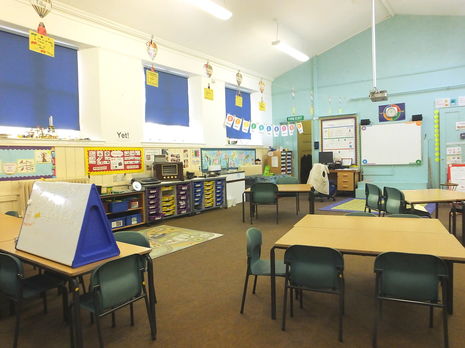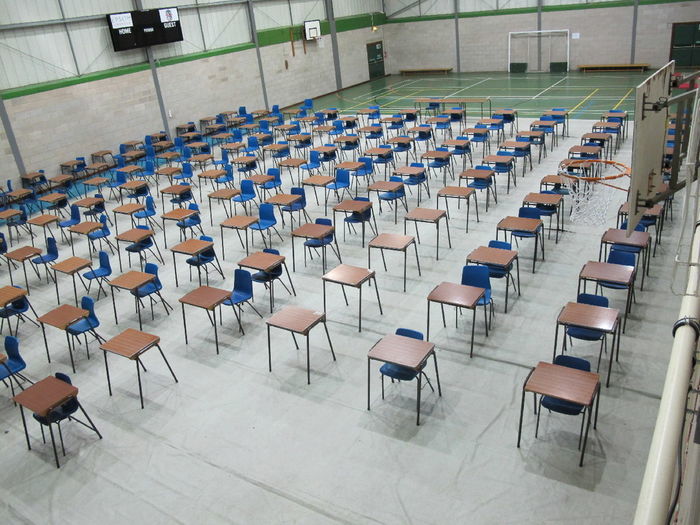The government’s plans for schools are inadequate. it’s time we put children first.
Francesca Smith argues that the government’s plans for helping students ‘catch up’ do not address what teachers, parents and pupils really need – and suggests politics has been placed above wellbeing

The government has made major announcements in recent weeks on the ways in which it will assist students to ‘catch up’ on learning they have lost over the past year, including the appointment of an Education Recovery Commissioner and a £700 million support package. Primary and secondary schools may draw on this funding for a one-off recovery premium for disadvantaged students, a one-to-one and small group tutoring programme, and for summer schools. Yet these silver bullet policy solutions suggest the government is more interested in its own political agenda than in what would truly benefit students.
Not only is the extent and nature of the support package inadequate, but the rhetoric underpinning it and the way in which it will contribute to a culture that puts academic achievements before individual wellbeing are also concerning.
Such broad-brush, quick-fix remedies are perhaps unsurprising since they come from a government with a tendency towards headline-grabbing solutions. We must ask, is this catch-up tsar someone with the leverage to bring together diverse actors or merely a gimmick guru that amounts to more top-down solutions? The push for summer schools may also be more useful politically than in practice. A recent report from the Education Endowment Foundation shows that summer schools have a low impact on learning gains. What this colossal task requires is a wider set of high-impact, evidence-based approaches that involve teachers, who are best-placed to identify and address student needs, more closely. This may not be so superficially attractive, but it would give students and teachers the support they deserve.
"These long-standing systematic issues show the government’s proposed solutions to be tokenistic."
Any efforts to empower teachers and students should include a more extensive, long term commitment to funding than this, in light of the fact that the education system has been rendered fragile by over a decade of austerity cuts. More crucially, the system was already plagued by gross attainment inequalities based on wealth, geography and ethnicity; a large body of evidence suggests that the pandemic has exacerbated this. These long-standing systematic issues show the government’s proposed solutions to be tokenistic, and highlights the need for an ambitious and comprehensive drive for change backed by more significant funding.
But it’s not only the level of tangible support that needs to change. The vocabulary used to describe the nature of education during the pandemic is also deeply problematic. Speaking to BBC News on 8th February, Sir Kevan Collins, the new Education Recovery Minister, explained that children have “missed a lot of time and we’re going to have to quickly get new opportunities for those children to catch up.”
Ubiquitous phrases such as ‘catch up’, ‘lessons lost’ and ‘learning gap’ treat the past year as a vacuum in which students learnt and achieved nothing. While the switch to online learning certainly has its challenges, teachers and parents have been making heroic efforts to ensure that children continue to receive a meaningful education. More importantly, the idea that all students are inherently behind is a cause of concern for parents and places immense pressure on students, many of whom are already struggling with issues of loneliness, grief and anxiety as a result of the pandemic.
"The ‘summer of play’ that they call for would provide children with sorely missed social interaction and a chance to come to terms with their experiences of the pandemic."
This rhetoric and the solutions it has engendered risk reinforcing the assessment culture that lies at the heart of the UK education system. The funding package is quite rigidly tied to academic study, and focuses on reaching some ambiguous correct standard of knowledge. Asking exhausted students and teachers to spend more time in summer schools and one-to-one tuition programmes surely quintessentially reflects the government’s narrow view of a ‘good’ education as being determined by grades, lesson hours and material covered. Yet it is about so much more than that.
Little attention has been paid to students’ mental health and wellbeing, as noted by Kate Green, Labour’s shadow education secretary. PlayFirst UK, a group of child psychologists and educators, as well as the Co-Chair of the British Psychological Society, have urged for wellbeing to be prioritised over learning outcomes in plans for a post-pandemic recovery. The ‘summer of play’ that they call for would provide children with sorely missed social interaction and a chance to come to terms with their experiences of the pandemic. Looking beyond academic study and instead turning to free play, art, music, and sports would re-engage students in a healthier way and foster their social and emotional wellbeing.
The pandemic has undoubtedly brought fundamental problems with the British education system to the surface. It has also presented us with an opportunity to solve them. Now is the time to revisit what is meant by a ‘good’ education; now is the time to ask ourselves whether we should desire a ‘return to normality’ if normality is characterised by test-driven learning and academic pressure. The government’s plans show us why we should not.
 News / Uni Scout and Guide Club affirms trans inclusion 12 December 2025
News / Uni Scout and Guide Club affirms trans inclusion 12 December 2025 News / Cambridge Vet School gets lifeline year to stay accredited28 November 2025
News / Cambridge Vet School gets lifeline year to stay accredited28 November 2025 News / Pembroke to convert listed office building into accom9 December 2025
News / Pembroke to convert listed office building into accom9 December 2025 Science / Did your ex trip on King’s Parade? The science behind the ‘ick’12 December 2025
Science / Did your ex trip on King’s Parade? The science behind the ‘ick’12 December 2025 Features / Searching for community in queer Cambridge10 December 2025
Features / Searching for community in queer Cambridge10 December 2025









